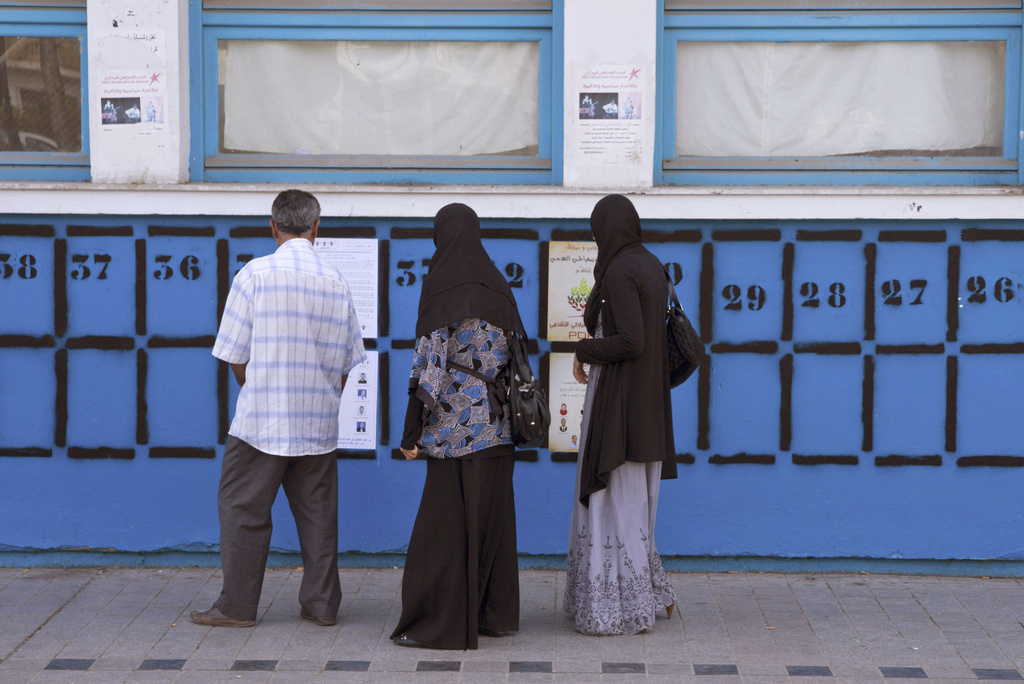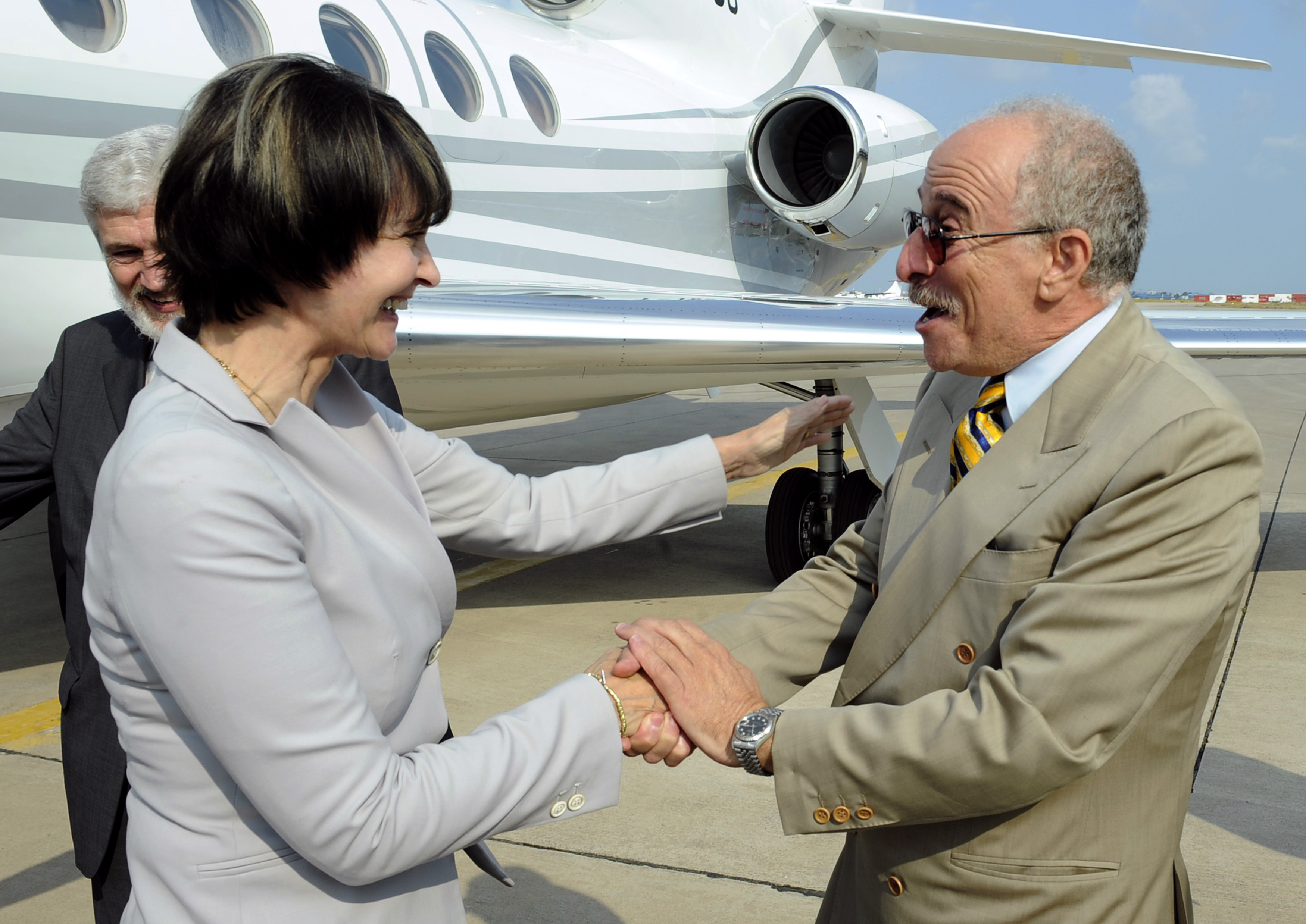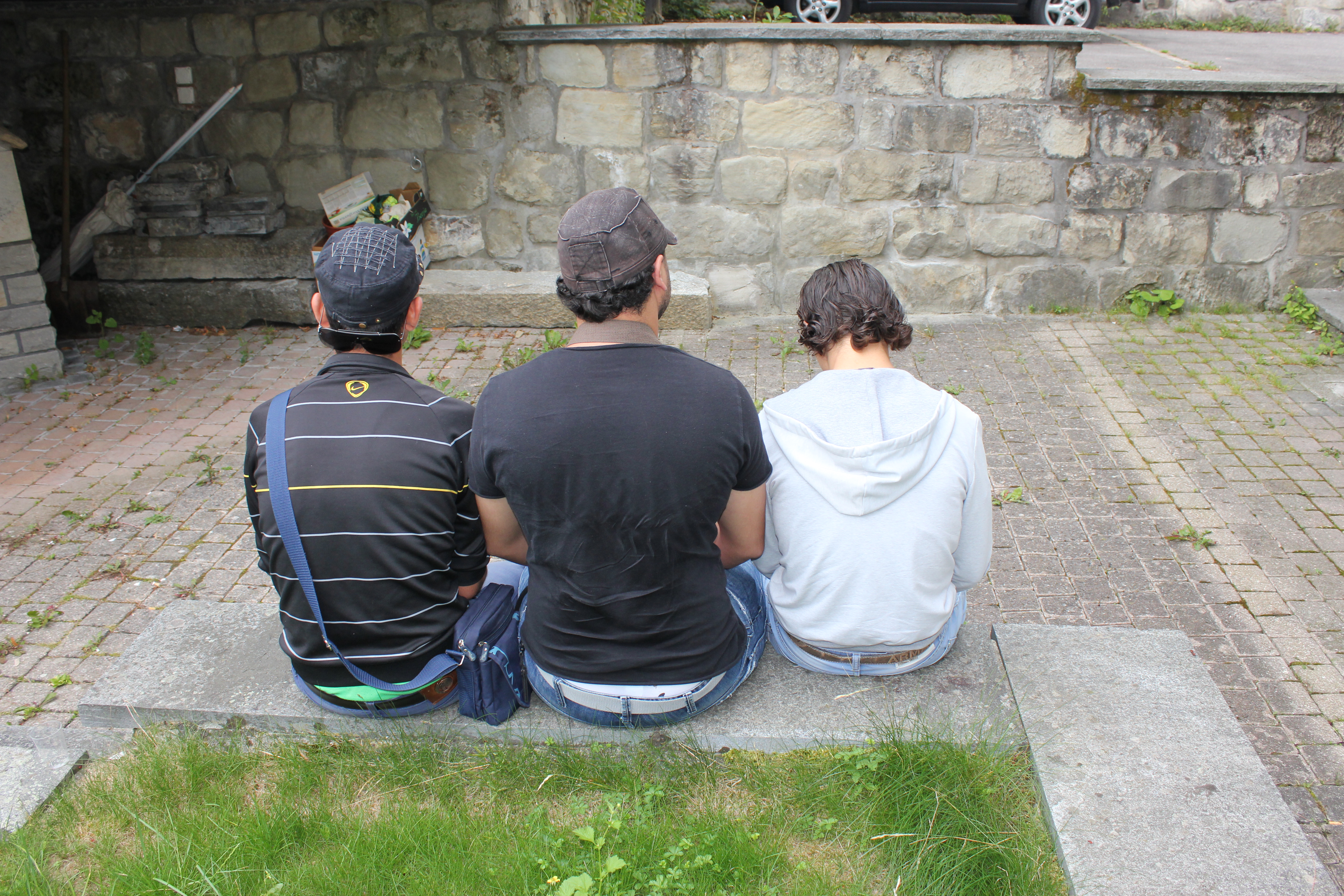Tunisia elections seen as bridge to democracy

In Switzerland – as in several other countries – elections of representatives of the Tunisian community abroad to the new parliament will be held from October 20 to 22.
Observers believe that these watershed elections to the National Constituent Assembly will mark the birth of a new Tunisia after the ouster of the regime of former President Ben Ali on January 14.
In the election constituency which covers Switzerland, the Americas and the rest of Europe (except for France, Germany and Italy), rivalry is raging between 17 lists for two seats at the Constituent National Assembly. Two of those lists have a male candidate and two female candidates from Switzerland.
In a statement to swissinfo.ch, Mohamed Hasan, the chairman of the Independent Regional Committee supervising these elections in Switzerland, said that “everything is ready to receive Tunisian voters living in Switzerland”.
He pointed out that five polling stations had been set up in Bern, Geneva, Lausanne, Neuchâtel and Zurich.
Participation embodies citizenship
Tunisians make no secret of their pride in what has been achieved so far. They were the first to spark off the Arab Spring, and they will be the first to hold free elections nine months after a peaceful revolution that toppled a corrupt dictatorial regime.
Hasan urges “all Tunisians – regardless of their intellectual or political orientations – to feel involved in this democratic transition, and realise that their participation in these elections is the best expression of their citizenship”.
This hope for a better tomorrow is what has pushed 11,333 candidates to run on 1,570 election lists.
The members of the lists are competing to win a total of 217 seats that form the long-awaited National Constituent Assembly whose main task will be to draft a new constitution for the country and supervise a second transitional stage, to be followed by parliamentary and presidential elections.
Emad Al-Abdali, a Tunisian lawyer living in Geneva for 20 years and Safwah Eissa, who also lives in Switzerland, are on the “Correction of Course” list. Al-Abdali explains the reasons why they decided to stand in these elections.
“The Tunisian revolution, which it is no exaggeration to say has changed the face of the world and led to the outbreak of popular revolutions in neighbouring countries, has moved away from the motives of the youths who sparked it.”
“The revolution has to be taken back to the people and to their youth vanguards.”
The other list which includes a candidate from Switzerland is the “The Independent, Progressive List for Liberties and Social Justice”. Munirah Mohamed, an artist living in Geneva, told swissinfo.ch that she had chosen this name for her list because she wanted it to be “collective and representative of all segments of the Tunisian people, and open to everything that is positive in human experience, as well as defending social justice”.
Attracting voters
Despite the large number of Tunisian parties participating in these elections, 110 in number, only three have managed to present lists covering all six constituencies outside Tunisia: Congress for the Republic, Democratic Forum for Labour and Liberties, and the Islamic-oriented Renaissance Party.
Since the start of the election campaign, these lists have been trying to approach voters living in Switzerland to persuade them to vote for their candidates.
Mohamed Al-Geraibi, in charge of the election campaign of the Renaissance Party in Switzerland, said Renaissance was for a parliamentary system which would return power to the people.
“We will work to establish a special ministry to be in charge of the affairs of Tunisian emigrants and to encourage them to invest in their country, particularly as Tunisian labourers abroad are the second source of hard currency after the tourism sector,” he said.
For his part, Jalal Al-Matiri, a Tunisian political activist who supports the Independent, Progressive List for Liberties and Social Justice, said: “We support the political parliamentary system, the separation between the three powers, the reform of the security and police apparatuses, and fighting all forms of evading punishment.”
Munirah Mohamed from the same list added: “If elected, we will work to have the next constitution contain a text related to the establishment of a special council for emigrants, independent of the Foreign Ministry. Its task will be to look after Tunisians abroad and respond to their aspirations.”
The Correction of Course List, as its slogan suggests, says its priority is “the reform of the judiciary, the purging of the security institutions, and the restructuring of the national economy in order to be able to exploit the human and financial potential of Tunisia and to respond to the aspirations of its citizens”.
Most of the candidates agree on the central role of the Tunisian community abroad which represents ten per cent of the total population.
Swiss inspired
Most of those who spoke to swissinfo.ch have been living in Switzerland for more than two decades and are clearly influenced by the Swiss social and political model. They emphasise the decentralisation of government, acceptance of other opinions, rejecting exclusion, and the readiness to make concessions.
It is striking that parties and independents inside Tunisia are repeating the same message, with clear calls for the adoption of direct mechanisms of democracy, decentralisation in government and referendums in key matters of public affairs.
Many lists stress the need to elect local councils and to grant them wide powers to determine the budgets of their areas, set development plans and manage their local resources. Every time the Swiss model is cited as an example.
About 8,000 of the 15,000 Tunisian emigrants in Switzerland have the right to cast their vote in these elections in which Tunisians living abroad are participating for the first time.
17 lists are competing in the election constituency which covers Switzerland, the Americas, and the rest of Europe (except for France, Italy and Germany where most of the Tunisian emigrants live), including 6 parties and 11 independent.
Only two lists include candidates living in Switzerland: “The Independent List for the Correction of Course” and the “Independent, Progressive List for Liberties and Social Justice.”
Tunisian voters will cast their ballot in five polling stations in Zurich, Bern, Lausanne, Geneva and Neuchatel.
October 23, 2011: Election of the National Constituent Assembly tasked with the preparation of a new constitution for the Tunisian republic inside Tunisia. For Tunisians abroad, the elections will be held from October 20-22.
217: The total number of seats in the Constituent Assembly, of which 18 seats are dedicated to Tunisians living abroad.
The election campaign began on October 1 and will end at midnight on Friday October 21.
11,333: The final number of candidates who will run in the race. Their distribution is: 5,731 (for the parties), 5,024 (for the independents), and 558 (for party coalitions).
1,570: The total number of competing lists distributed as follows: 790 party lists, 701 independents’ lists, and 79 lists for coalitions formed by several parties. As for Tunisians abroad, the candidates are on 138 lists (72 independent, and 66 party)
Switzerland has paid for all the ballot boxes being used in the election. The boxes comply with international standards.
The Swiss foreign ministry told swissinfo.ch that supplying transition countries with election materials was in line with international law and could boost voters’ confidence in the process.
Switzerland is also sending 12 experts and observers to assist in the monitoring of the election, among them members of teams representing European bodies and the International Organisation for La Francophonie.
Swiss parliamentarian Andreas Gross will lead a 20-strong delegation of observers from the Council of Europe.
It supports various civil society organisations that are attempting to raise awareness and educate citizens about their civil rights.
(Adapted from Arabic by Muhammad Shokry)

In compliance with the JTI standards
More: SWI swissinfo.ch certified by the Journalism Trust Initiative












You can find an overview of ongoing debates with our journalists here . Please join us!
If you want to start a conversation about a topic raised in this article or want to report factual errors, email us at english@swissinfo.ch.